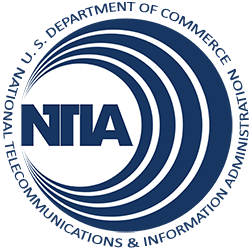BlueBird Media’s Northern Missouri Ultra-High Capacity Middle Mile project , a public-private partnership among local service providers and regional cooperatives, the state of Missouri, and national equipment vendors, proposes to bring high-speed Internet access to a largely underserved and/or economically distressed 59-county region in the northern part of the state. The project plans to enable health care institutions to initiate regional health information exchanges and foster telehealth adoption, along with advanced medical imaging and medical collaboration in rural areas. The project would also utilize telehealth to allow regional correctional facilities to limit costly inmate transport and reduce security risks. The project’s network also plans to enable significant online testing for students, distance education, and other e-learning technologies.
Missouri

| Grantee | Total Award | Type |
|---|---|---|
| BlueBird Media, LLC | $45,145,250 | Infrastructure |
| Communication Service for the Deaf, Inc. | $14,988,657 | Sustainable Adoption |
| Mission Economic Development Agency | $3,724,128 | Public Computer Centers |
| Missouri Department of Higher Education | $4,978,977 | Public Computer Centers |
| Missouri Office of Administration | $6,573,382 | Broadband Data & Development |
| One Economy Corporation | $28,519,482 | Sustainable Adoption |
| Sho-Me Technologies, LLC | $26,600,000 | Infrastructure |
| University Corporation for Advanced Internet Development | $62,540,162 | Infrastructure |
Broadband’s ability to expand educational and employment opportunities is especially meaningful for Americans who are deaf or hard of hearing, a community that faces unique challenges in education and that suffers from a rate of unemployment much higher than the national average. Communication Service for the Deaf, Inc. (CSD) intends to expand broadband adoption among people who are deaf and hard of hearing and provide them with online tools to more fully participate in the digital economy. The project proposes to employ a combination of discounted broadband service and specialized computers, technology training from an online state-of-the art support center customized to the community’s needs, public access to videophones at anchor institutions from coast to coast, and a nationwide outreach initiative. Thousands will gain online access to all the Internet has to offer, including sign language interpreters, captioned video services, and other content and functionalities designed especially to advance their educational, employment, and healthcare interests.
The Mission Economic Development Agency, in collaboration with the National Association for Latino Community Asset Builders and a national network of Latino-serving economic development organizations, plans to create 12 new public computer centers and expand five existing ones in 13 communities throughout the United States. Each center expects to operate on the project’s centrally managed network and provide computer training and adult education to a low broadband adoption, high unemployment target population through a standardized English-Spanish training curriculum. The project expects to add a total of 263 new workstations and replace 37 existing workstations, enabling the centers to serve an additional 2,500 users per week and train an estimated 3,000 users per year. Broadband capabilities at each center will be increased to speeds of 1.5 Mbps. Public computer centers funded through this grant will be located in Phoenix, AZ; Canoga Park, Los Angeles, and San Francisco, CA; Del Norte, CO; Blackfoot, ID; Wheaton, MD; Minneapolis, MN; Kansas City, MO; Anthony, NM; Philadelphia, PA; and San Antonio and Laredo, TX.
The Missouri Department of Higher Education, in collaboration with seven of the state’s community colleges, plans to expand a network of public computer centers in key areas across Missouri. Each center will be tailored to address the unique needs of the community, emphasizing community college students and economically disadvantaged residents. The centers will be “one stop” locations from which individuals can access resources to help them in the job market, utilize new and upgraded broadband workstations, and obtain training. Metropolitan Community College in Kansas City plans to use a mobile public computer center to deliver broadband access throughout the service area.
Project Components
State Broadband Capacity Building:
As a result of the work of the MOBroadbandNow team, the Missouri Office of Administration proposes to establish a state broadband office. The office will provide direct support to the regional broadband teams, organize an annual statewide broadband summit that will report on the progress of all broadband grants received by a MOBroadbandNow partner, and leverage the regional plans created through the first phase of this project to develop a comprehensive state broadband plan.
Technical Assistance:
With this funding, the awardee will develop a centralized technical assistance team that will respond to local requests to provide assistance, advice, and technical consultations in support of new broadband deployment or adoption projects. In order to foster greater sharing of best practices, this group will also facilitate technical discussions among organizations belonging to similar Community Anchor Institution groups.
Local Regional Planning Teams:
Building on lessons learned during the pilot phase of this project, project leaders will work with the Geographic Information Officer and the Missouri Association of Councils of Government to create broadband regional technology planning teams in each of the state’s 19 regional planning commissions. These teams will leverage existing local partnerships that have been created through the BTOP and RUS grant opportunities. Two University of Missouri graduate students will benchmark the progress of each team toward meeting its stated goals.
Data Collection, Integration, and Validation:
This project was originally funded for broadband planning activities and two years of data collection. In September of 2010, this project was amended to extend data collection activities for an additional three years and to identify and implement best practices.
Address File Development:
The awardee will develop a situs point-based address file that will support more granular broadband data collection and also the needs of local governments and the public safety community. Participating agencies and localities will provide local match for the project, increasing local ownership of the activity.
The 21st Century Information and Support Ecosystem project proposes to implement a comprehensive program of computer training, wireless Internet access, broadband awareness marketing, and online content and applications to residents of 159 affordable and public housing developments and low-income communities in 50 cities and towns across 31 states and the District of Columbia. The project plans to implement four principal programs: training 2,500 youth to become “Digital Connectors” who will then provide digital literacy training to others in their communities; deploying localized broadband networks in public housing developments; developing online content and applications aimed at low-income, low-literacy audiences.
Today, many community-serving institutions in south-central Missouri rely on copper-based Internet access, but need significantly higher speeds to enable distance learning, tele-health, and enhanced public safety applications. Sho-Me Technologies proposes to deploy a fiber-based middle-mile network in the 30-county region to expand broadband capabilities and foster SmartGrid applications in partnership with electric co-ops for more efficient and secure energy use in the region.
As part of a longstanding project to connect essential community anchor institutions across the country, and facilitate closer collaboration and long-term benefits for education, research, healthcare, public safety, and government services, the University Corporation for Advanced Internet Development (UCAID) proposes a comprehensive 50-state network benefitting approximately 121,000 community anchors. The project proposes a large-scale, public-private partnership to interconnect more than 30 existing research and education networks, creating a dedicated 100-200 Gbps nationwide fiber backbone with 3.2 terabits per second (TBps) total capacity that would enable advanced networking features such as IPv6 and video multicasting. The project plans to connect community anchors across all disciplines into virtual communities with shared goals and objectives, including colleges, universities, libraries, major veterans and other health care facilities, and public safety entities, with additional benefits to tribes, vulnerable populations, and government entities.
